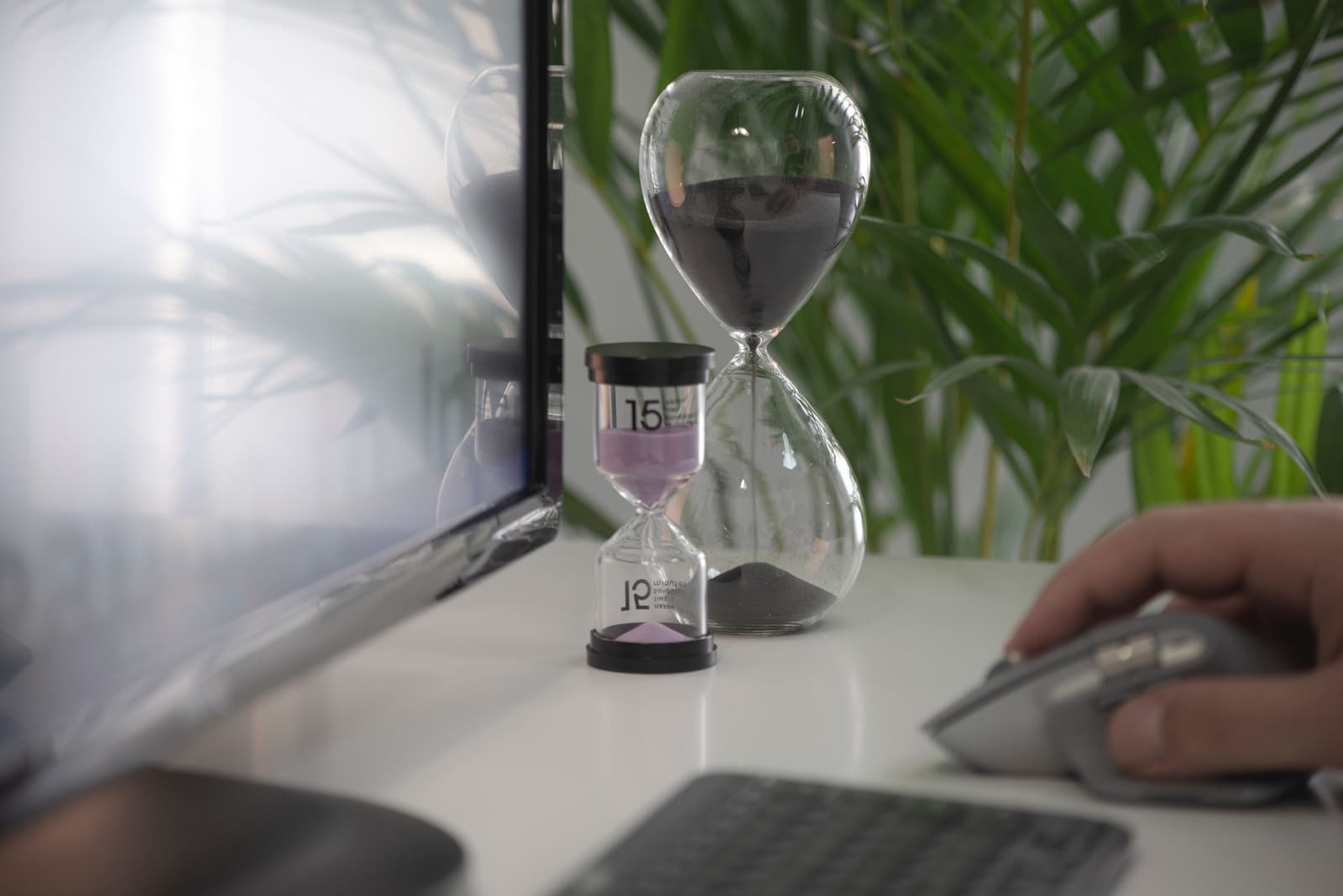
What can you claim on tax? A guide for freelancers
“What can I claim on tax?” It’s one of the most important questions for freelancers and sole traders to understand. Here’s what sole traders need to know about tax deductions.
Article contents
− +- Introduction
- What are tax deductions?
- How do you claim tax deductions?
- How can sole traders track expenses?
- Home Office Expenses
- Running expenses
- How to calculate home office expenses
- Using the fixed-rate calculation to figure out running costs
- Occupancy expenses
- Calculating occupancy expenses
- Vehicle expenses
- Cents per kilometre method
- Travel expenses
- General business operating expenses
- Digital product expenses
- Repair and maintenance expenses
- Depreciating assets
- What can’t you claim on tax?
- Tax deductions on personal services income (PSI)
- What can I claim on tax without a receipt?
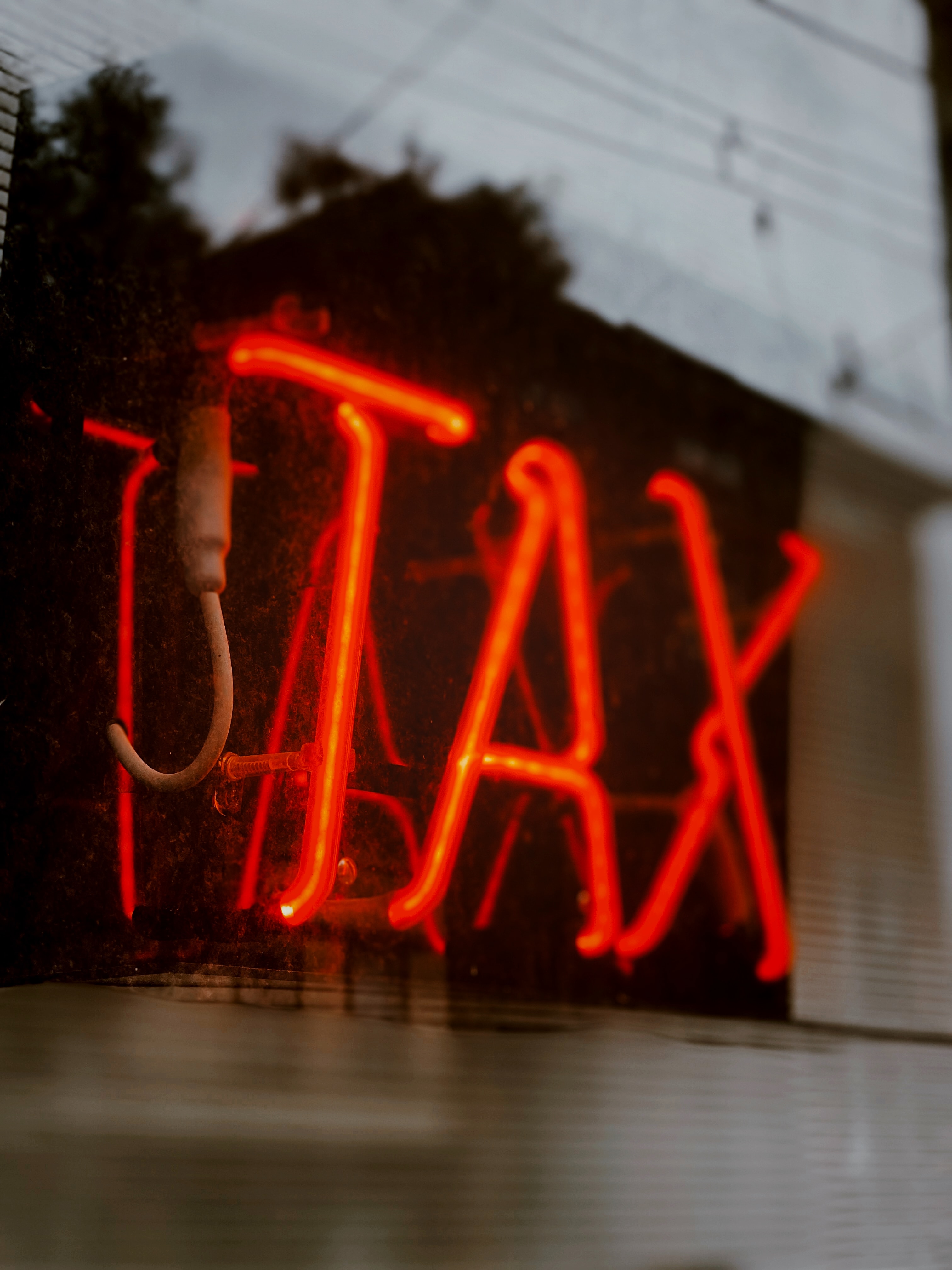
Note: This article has been updated for the 2024-2025 tax year. However, it is a general guide only. For advice on your specific situation, talk to an accountant, registered tax agent, or the ATO.
Get all the latest updates for tax year 2024 - 2025 here.
Running a business costs money. Annual fees, software subscriptions, home office equipment, supplies and materials, travel costs—these things add up, but fortunately, many of them count as tax-deductible business expenses.
If you want to keep as much of your own income in your pocket as possible come tax time, then understanding what you can claim on tax, and what you can’t claim, is vital.
We know it can be a bit complicated, especially if you’ve just started freelancing. In this guide, we cover some of the most common deductions for freelancers and sole traders in Australia. First, though, let’s look at what tax deductions are and how to claim them at tax time.
What are tax deductions?
A tax deduction is an expense subtracted from your taxable income. Tax deductions reduce the amount you pay taxes on.
For example, let’s say you made $75,000 in income during the financial year and incurred business-related expenses worth a total of $10,000. In this case, your taxable income would be $65,000 instead of $75,000, reducing the amount of tax you owe for that year.
In Australia, most expenses related to running your business can be claimed as tax deductions.
According to the Australian Taxation Office (ATO), a business expense must meet three criteria to be claimable as a tax deduction:
The expense must directly relate to operating your business and not be for personal use.
If the expense is for both business and personal use, you can only claim the portion of the cost that is used for your business.
You must have records to prove it. Note that having a ‘record’ doesn’t always mean you need a receipt. We’ll cover this in more detail in ‘What can I claim on tax without a receipt?’ below.
How do you claim tax deductions?
Tax deductions can be claimed via your annual tax return. If you’re set up as a sole trader, you can claim deductions in the ‘Business and professional items’ section of your individual tax return. You can either do this yourself by lodging online with MyTax, or by using an accountant or tax agent.
If you’re set up as a company, you’ll need to claim deductions in your company tax return.
Check out our full guide on sole trader taxes for more information.
How can sole traders track expenses?
Expense tracking is important, but it can be very time-consuming without the right tools and processes.
You could manage your taxes through your own system, such as a spreadsheet where you manually enter your expenses item by item. But that can be very tedious, not to mention it’s easy to fall behind and lose money because of missed expenses.
Fortunately, there are automated systems like Rounded, designed to make it much easier to track your expenses throughout the year. Rounded connects with all major Australian bank accounts, and our AI system makes tracking expenses faster than ever.
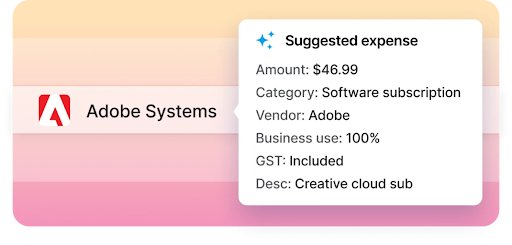
You’ll be able to review them in just a few clicks, and share time directly with your tax accountant come tax time.
Not only does a system like this save time and maintain accuracy—it shows you exactly where your money is going. This gives you the insights you need to streamline and grow your business.
If you have an ABN and are operating as a sole trader business in Australia, here are some of the most common freelancer tax deductions you should have on your radar.
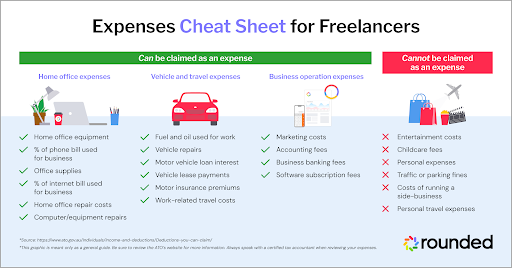
Home Office Expenses
If you're a freelancer working from home, you can claim tax deductions for home-based business expenses.
As of July 1, 2022, the Australian Taxation Office (ATO) has introduced new methods for calculating these deductions. Let's break down what you can claim and how to calculate the right figures.
Running expenses
This covers the equipment, tools, and other physical goods you need to run your business.
Home office equipment, including computers, printers, phones and home office furniture.
Utilities, including phone, internet, electricity and gas.
Cleaning costs.
Repair costs, including the cost of repairs to home office furniture or fittings.
General home office costs, including stationery, printer paper and ink.
Note that if you have an employer in addition to your sole trader business, you cannot claim deductions on things they provide you (such as a laptop or mobile device). This includes general household items (like coffee, milk, and tea), even if your employer offers that in the office.
How to calculate home office expenses
The ATO now offers two methods for calculating your home office expense deductions:
Fixed rate method: This simplified approach allows you to claim 67 cents per work hour for additional running expenses. (This is an increase from the previous rate of 52 cents.) You can also claim separate amounts for expenses not covered by the fixed rate, such as the decline in value of depreciating assets. Importantly, you no longer need a dedicated home office to use this method; if you work from the kitchen table or back patio when you’re at home, you can still make this claim.
Actual cost method: This involves calculating the actual expenses you incur as a result of working from home. While potentially more time-consuming, this method may result in a larger deduction if your costs are significant.
Using the fixed-rate calculation to figure out running costs
To make calculating the cost of running expenses easier, the ATO allows sole traders to deduct a fixed rate of 67 cents for each hour you work from home.
For example, if you work 38 hours from home during a week, your allowable running expenses deduction for that week would be:
38 x .67 = $25.46
This calculation covers the cost of business expenses that might be harder to track, like heating, cooling, lighting, cleaning and the decline in value of furniture.
If you use this method, you’ll still need to separately keep track of other office expenses. These might include:
The portion of your phone and internet bills used for work
Stationery
Decline in value on computers or other equipment
Alternatively, you can manually calculate and deduct all running expenses, but you’ll need to maintain records—such as a diary of the number of hours you work from home for the year—to prove your claim is reasonable.
Occupancy expenses
In some cases, particularly if you have a dedicated home office, you might also be able to claim occupancy expenses such as:
Rent
Mortgage interest
Property insurance
Land taxes
Council rates
Calculating occupancy expenses
If you work from home and can claim occupancy expenses, you’ll need to work out the portion of your home that you use for work purposes. You can do this by calculating:
Total expenses x the percentage of your home’s floor area you use for work x the percentage of the year that part of your home was used exclusively for work
For example, if the floor area you use for work takes up 20% of your home, and you worked from home all year, you can claim 20% of your total occupancy expenses as a tax deduction.
You can also use the ATO’s home office expenses calculator to work out your allowable deductions for the year.
Vehicle expenses
If you use a car or other vehicle for work purposes, you can claim the following vehicle expenses:
Fuel and oil
Repairs and servicing
Interest on a motor vehicle loan
Lease payments
Insurance cover premiums
Registration costs
Depreciation (decline in value—be sure to see below for more information on this in the Depreciating Assets section)
Keep in mind that you can only claim vehicle expenses that relate to your business. For example, if 50% of your car use is for work, you can only claim 50% of the expenses above as a business deduction.
The ATO offers two methods for calculating these sole trader claims: the logbook method and the cents per kilometre method.
Cents per kilometre method
This simplified approach allows you to claim a set rate for each business kilometre travelled, up to a maximum of 5,000 kilometres per car per year.
These cents per kilometre rates change almost every year. Here are the most recent rates, in case you are calculating expenses from a previous tax year:
2024–2025: 88 cents per kilometre
2023–2024: 85 cents per kilometre
2022–2023: 78 cents per kilometre
This rate covers all car expenses, including those listed above. You can't claim any of these expenses separately when using this method.
However, if you use more than one car for work, you can claim up to 5,000 kilometres for each car under this method.
Logbook method
If you use your vehicle extensively for work, the logbook method might result in a larger deduction. This method requires you to keep a logbook for at least twelve continuous weeks and record all vehicle expenses throughout the year.
If you use more than one vehicle for work, you can use different tracking methods for different cars and change methods between tax years.
Whatever method you choose, keep records to show how you calculate your work-related kilometres.
Travel expenses
Sole traders can claim travel expenses as well, but only for trips (or portions of trips) that are for work-related purposes. If you didn’t have to take the trip for work, then you probably can’t claim it.
For trips that are work-related, you can claim:
Airfares
Public transport or taxi fares
Car hire fees and related costs such as fuel, tolls and car parking
Accommodation costs
Meal costs, if you are away overnight
If some of the trip is purely for pleasure, then you need to run calculations to separate expenses from non-expenses.
For example, if you travel to Sydney for a three-day conference, but stay to visit friends for another three days, you can claim hotel fares and meals for the first two days, but not the rest of the trip. If your airfare was $500 round trip, you can claim $250, as half of the trip was dedicated to work. If you’re someone who travels a lot, be sure to check out our guide to digital nomad taxes.
General business operating expenses
Outside of your home office and travel expenses, there are still plenty of costs you can claim as sole trader tax deductions.
Costs associated with running your freelancer marketing strategy
Legal expenses
Fees you pay your accountant or bookkeeper
Fees on your business bank account
Premiums on your sole trader insurance
Interest on business loans
Uniform fees
See the full list of deductible operating expenses here.
Digital product expenses
Most sole traders use software and other digital products to maintain their business. These are typically tax deductible (including your Rounded subscription!).
The ATO divides digital expenses into two categories:
Operating expenses
You can claim immediate deductions for digital operating expenses in the year you incur them. These include:
Internet service provider fees
Software subscription fees (e.g., accounting software, cybersecurity, point of sale, client, and inventory management software, etc.)
Website maintenance costs
File-sharing services
Cloud storage fees
Digital product lease payments
Capital expenses
Some digital products are considered capital expenses. These are typically claimed over time as they depreciate. Examples include:
Computers and computer accessories
Mobile phones and tablets
Connectivity boosters
Cameras
Point of sale (POS) machines
In-house software
Website development costs
Remember, if you're eligible for the instant asset write-off (as discussed in the Depreciating Assets section), you may be able to claim the full cost of these items immediately.
And once again, if you are using some of the items for personal reasons, then you can only deduct the percentage used for work.
For example, let’s say you have a single phone plan that costs $60 per month. You estimate roughly 30% of your data is used for work. In this case, you could deduct $18 from your phone bill each month.
Repair and maintenance expenses
If you need to pay for work-related repairs and maintenance, you can claim these costs as deductions. This includes:
Computer or other equipment repairs
Machinery repairs
Painting
Plumbing work
Repairing electrical appliances
You don’t need to own the property or item that is being repaired or maintained to claim a deduction. However, the repairs or maintenance must relate to your business.
Depreciating assets
Some of the assets you claim decline in value over time. This includes:
Computers and electronics
Cars and vehicles
Office equipment and machinery
Furniture, carpet, and curtains
In the past, it was common for sole traders to claim depreciation over several years—which could be a mathematical headache. However, the instant asset write-off scheme has simplified this process for many small businesses.
For the 2023-24 and 2024-25 income years, small businesses with an aggregated annual turnover of less than $10 million can immediately deduct the full cost of eligible assets costing less than $20,000. This applies to assets first used or installed ready for use between July 1, 2023, and June 30, 2025.
The $20,000 threshold applies on a per-asset basis, so freelancers can instantly write off multiple (eligible) assets. For example, if you purchase a new computer for $1,500, a desk for $800, and a printer for $400, you can immediately deduct the full cost of all these items in your tax return.
If you have assets that fall into this category, then it’s highly advisable you work with a tax professional and provide them with details and records of the item purchased, including:
The date of purchase
The amount you paid
Any GST withheld
What % of the purchase will be used for work purposes
A copy of the invoice or receipt
Rounded users can simply label any assets that may qualify for instant write-off under “Equipment” within their P&L statement. (Not using Rounded? Start a free trial.)
What can’t you claim on tax?
Although most legitimate business expenses are tax-deductible, there are some costs you can’t claim:
Entertainment expenses.
Traffic or parking fines.
Personal expenses, such as childcare fees.
Expenses relating to income separate to your main business. For example, if you’re a freelance designer but you make extra income selling jewellery on the side, you can’t claim deductions on expenses relating to your jewellery-making hobby.
The GST portion of an expense, if you can claim it as a GST credit on your business activity statement.
Tax deductions on personal services income (PSI)
In Australia, some freelancers and sole traders earn what’s known as personal services income (PSI).
If your work is based on your skills and expertise (rather than, say, supplying finished products), the income you receive may be classified as personal services income (PSI).
The ATO uses several criteria to determine if a business earns PSI. Even if the majority of your work is based on your skills and expertise, your income still may not be classified as PSI if you don’t meet all the criteria.
The easiest way to work out if you earn PSI is by using the ATO’s personal services income (PSI) decision tool.
If you do earn PSI, there are some business tax deductions you can’t claim. This includes rent, mortgage interest, rates and land tax.
Find out more about deductions that can't be claimed on PSI here.
What can I claim on tax without a receipt?
As mentioned above, the ATO requires freelancers (and other businesses) to keep 'records' for all expenses they claim at tax time. Rounded users can easily upload digital copies of their receipts, and submit them all at once to their tax accountant.
However, you don’t need to keep receipts for all business expenses. Here are a few situations where you don’t need receipts for tax time. NOTE: You will still need to have records of some kinds in most cases. See details from the ATO here.
Vehicle expenses. You can claim 88 cents per kilometre for every kilometre travelled throughout the year, up to 5,000 kilometres, instead of keeping records or receipts.
Home office running expenses. You can calculate a fixed-rate deduction of 67 cents for each hour you work from home instead of relying on receipts or records.
Receipts that aren’t easy to get. In some cases, when a receipt is hard to come by, you can make a claim provided you can show records of the purchase in other ways.
Smaller expenses. You may not need receipts for claims under $10, provided your total claim for small expenses is less than $200 total.
Laundry expenses. If you take your work clothes or uniforms to the cleaners and spend up to $150, you can typically claim this without a receipt.
For all work-related expenses, you can generally claim up to $300 in total without needing a receipt or proof of your claim. However, this may not be the case in your particular circumstances, so it’s best to consult with a registered tax professional.
Rounded makes expense-tracking simple for freelancers and sole traders. Here’s how it works:
Drag and drop or snap photos of your receipts via the mobile app, and they'll be safe and sound in the cloud.
Import your purchases from over 130 Australian banks to make expense tracking a breeze.
Quickly and easily log recurring expenses like phone and utility bills.
Pull up clean and organised expense records whenever you need them.
Final Thoughts: Empower your business with tax deductions
Tax deductions may seem complicated, but claiming the maximum amount of deductions gives you a competitive edge as a business.
Deductions let you keep more of your own money throughout the year. This extra income makes it possible for you to invest in the software, tools, and resources you need to run a thriving freelance business.
For more help with all things tax related, be sure to visit our Ultimate Sole Trader Tax Guide.
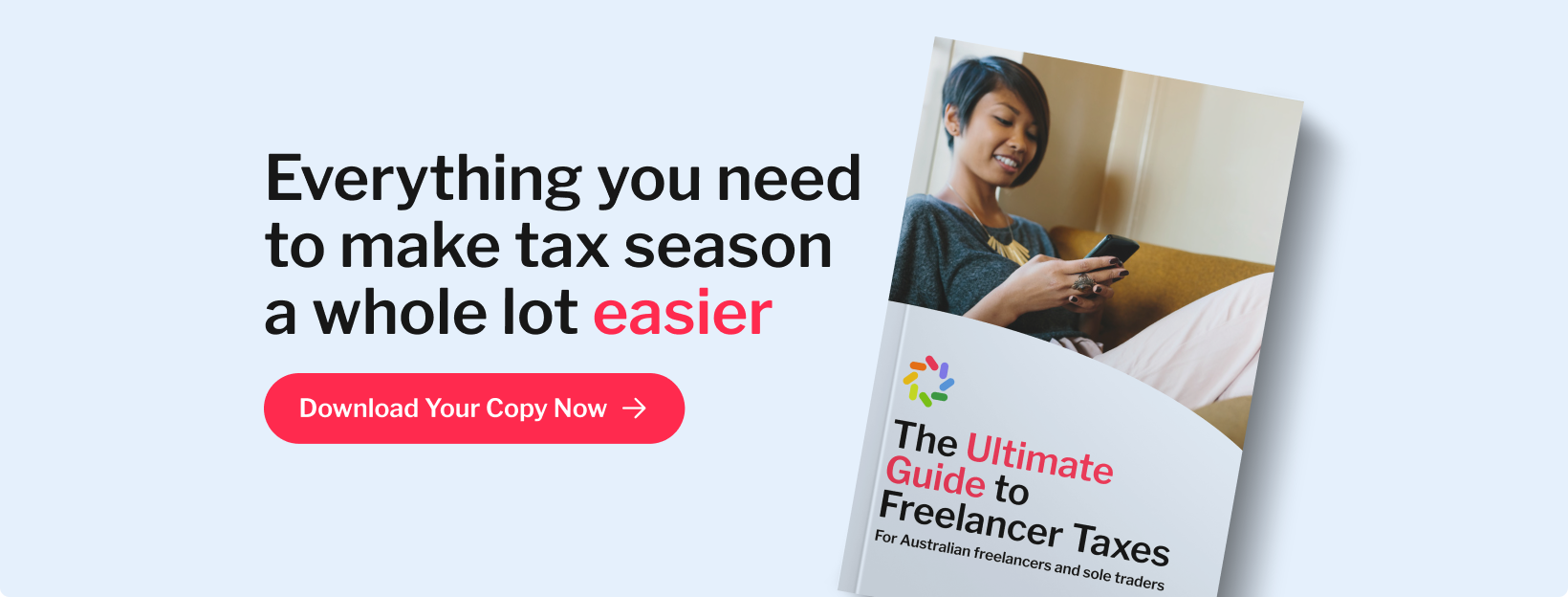
Contents
- Introduction
- What are tax deductions?
- How do you claim tax deductions?
- How can sole traders track expenses?
- Home Office Expenses
- Running expenses
- How to calculate home office expenses
- Using the fixed-rate calculation to figure out running costs
- Occupancy expenses
- Calculating occupancy expenses
- Vehicle expenses
- Cents per kilometre method
- Travel expenses
- General business operating expenses
- Digital product expenses
- Repair and maintenance expenses
- Depreciating assets
- What can’t you claim on tax?
- Tax deductions on personal services income (PSI)
- What can I claim on tax without a receipt?
Join newsletter
ABOUT ROUNDED
Invoicing and accounting software for sole traders. Get paid faster and relax at tax time.
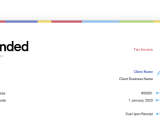



















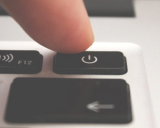




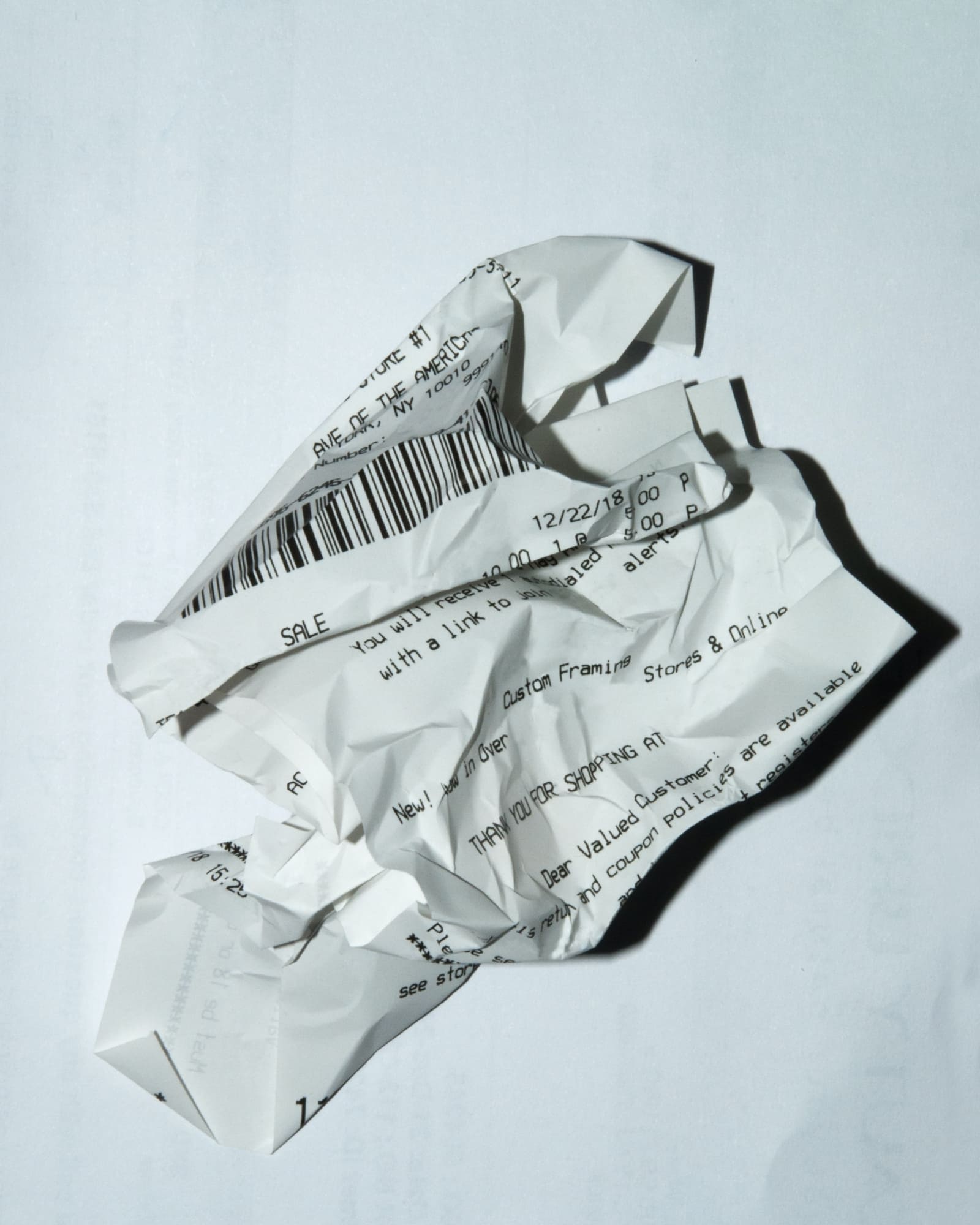
-p-1600.jpeg)
